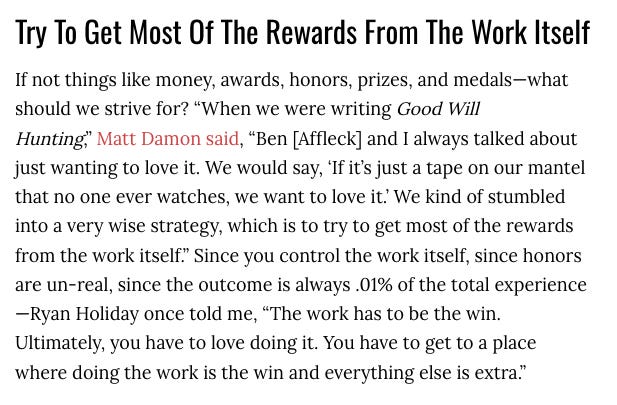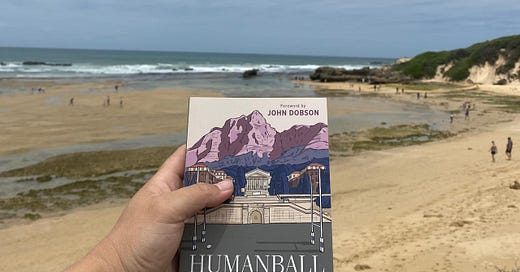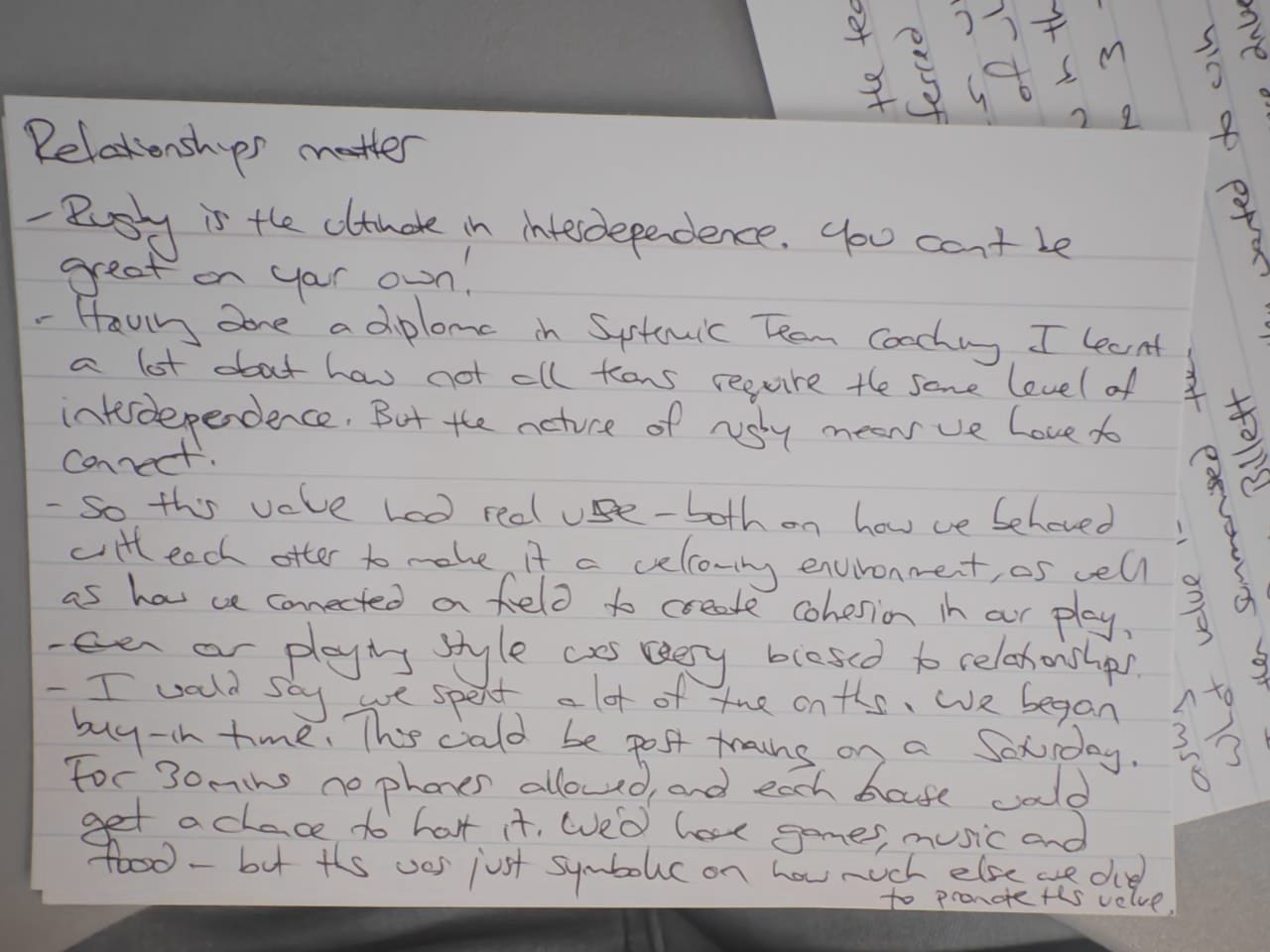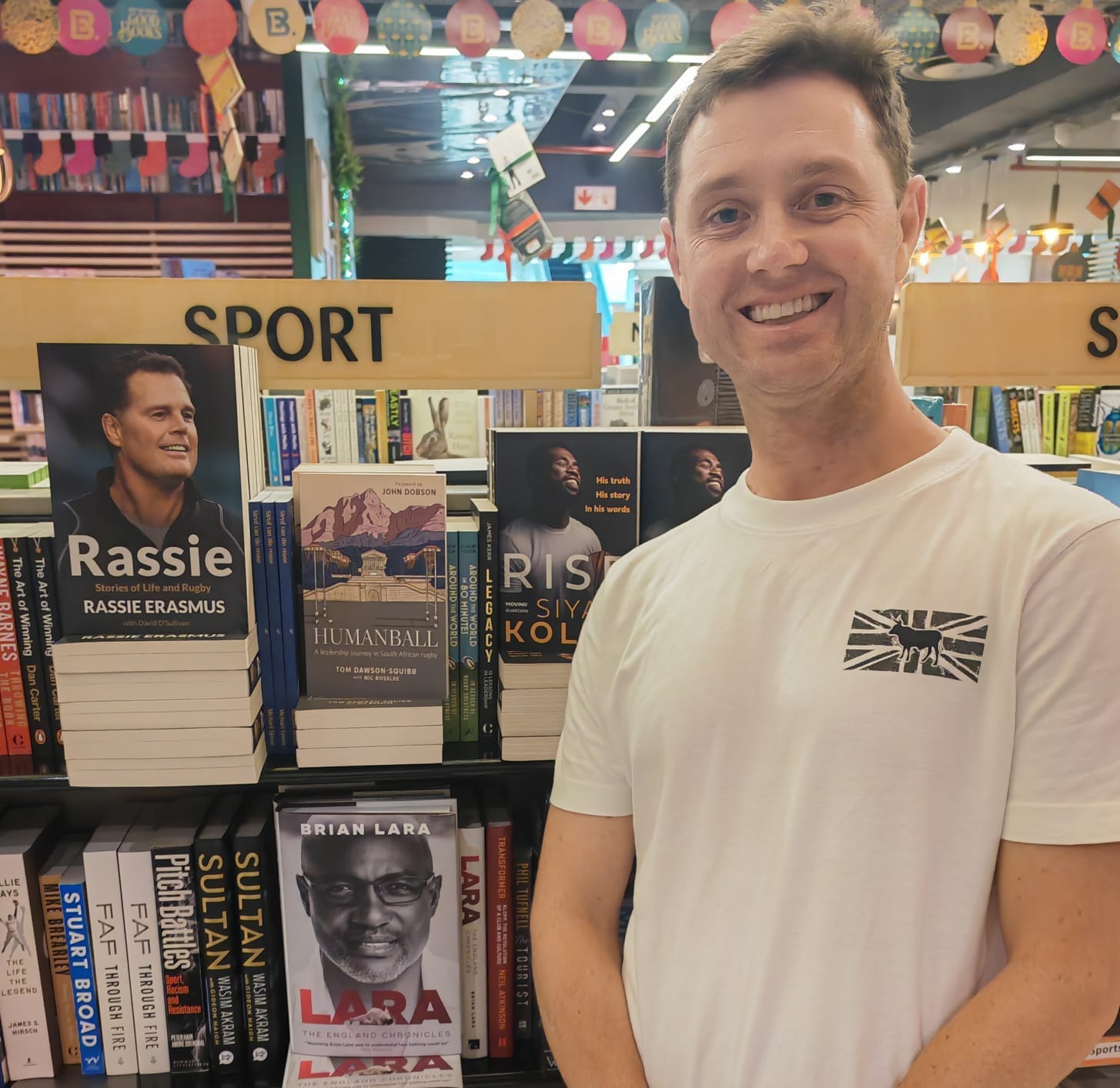I have been mighty quiet on Substack this year.
In April, I published Pure Gold, inspired by a story that Rob Louw told about Errol Tobias at a rugby evening at Wynberg Boys’ High. A few weeks later, Tom Dawson-Squibb reached out to me for advice about his idea for a book. Tom was on the panel that evening alongside Rob Louw, Duane Vermeulen and Dave Wessels which Nic Groom expertly hosted.
Tom wanted to write a book about his five years as head coach of the University of Cape Town’s rugby team. His tenure came to a heartbreaking end with a loss in another final—this time to the University of Free State Shimlas in Bloemfontein.
I took Tom a pack of 100 4” x 6” notecards and suggested that any story that he may have, no matter how big or small, should make its way onto a notecard in a few sentences or bullets. For the Proteas’ Performance Coach, I dusted off the cricketing analogy of ‘building an innings with ones and twos’ and said something to the effect of, “Trying to write a book is too big of a project to get your head around. What I would do before trying to ‘write a book’ is to try and notch up a century of these notecards with stories and anecdotes.”
I had never written a book before, though, and I knew that a few esteemed authors used this method. I soon learnt that Tom wasn’t really asking for my advice about how to write a book; he was asking me to help him write it.
He sent through his first notecards from a flight to the T20 Cricket World Cup in the USA and West Indies, and I encouraged him to keep going. He started adding further context to the stories with voice notes. After about his 30th notecard, we shelved the notecard system altogether in favour of voice notes which we felt had more texture and ‘story’ to them.
We then started recording an hour-long video call a week, and Tom sent me the recordings of his calls with his assistant coaches, the chairman of the club and other key personnel. I started working through the transcripts of these calls, whittling away at them and a picture of what the book might look like started emerging.
Over the next seven months, we went back and forth with the draft stories that pivoted around three themes that were illustrative of the journey (Defy, Explore and Simplify). I then met with the 12 guest ‘authors’ (who were all leaders within the team) to help them craft a story that meant the most to them about the Ikey Tigers, which were included in the book.
One of the central ideas in the book is what Tom refers to as Performance Connections:
“Performance is the ultimate goal in any team sport. While fostering camaraderie and the philosophy of “if the players love each other, they’ll win”, hold some truth, they’re only part of the equation. The primary focus should be on what we need from each other on and off the field to contribute to the collective effort. The more I know about myself and the player next to me from a performance perspective, the more we will be able to help each other.
This can definitely happen organically, but the problem arises when you are hoping for these connections to spontaneously occur, and they don’t. In my view, if you have strong Performance Connections, teammates don’t need to be close friends to be great teammates. This is especially so in sports like cricket, where players frequently move between teams and may not have long-standing relationships, it’s crucial to be aware of the impact you can have on one another’s performance.”
Despite writing a book that largely explores this idea, it felt like an unwritten rule that we would never speak about the Performance Connection we were developing over the project. We would often refer to the screenshot below in our message history from the American writer Billy Oppenheimer’s newsletter SIX at 6 from April this year.

The title of Oppenheimer’s yet to be released book, The Work Is The Win, became a maxim of ours—we would refer to whenever we thought we might be getting ahead of ourselves as our ambition for the project grew.
I am incredibly proud of the work we put into this project and am so happy with the final product. It was a great privilege to work on this project with Tom, who believed in me and trusted me to manage it. I am also so grateful for everyone who supported this project from the start—especially Jules, who took on the lion’s share of the dinners, baths, and bedtimes over the past seven months to create space for me to write.
Writing online became a meaningful hobby for me a couple of years back, and the positive responses I received from this newsletter's subscribers fuelled this labour of love. While I always secretly harboured the dream of writing one or more books, I didn’t think that this year would be the year that it would happen.
I fetched the first 1,000 copies from the printers last Friday and delivered the first 200 books to those who pre-ordered this week. In the last few days, we have managed to get copies into the Exclusive Books stores in Cavendish Square, the V&A Waterfront, and The Book Lounge.
We also received our first review from Karina Szczurek, and Tom appeared on John Maytham’s Afternoon Drive Show on Cape Talk, which you can listen to here.
We are taking orders for delivery within South Africa on our website at www.humanball.co.za.
Read an excerpt from Humanball below.






